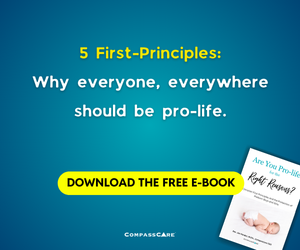A federal appeals court ruled this week that Texas can uphold its pro-life laws and is not legally required to adhere to a pro-abortion federal law issued by President Joe Biden in 2022.
On January 2, the Fifth Circuit rejected an appeal from the pro-abortion defendants in the lawsuit Texas v. Becerra. The American Association of Pro-Life Obstetricians & Gynecologists (AAPLOG), the Christian Medical & Dental Association, and the state of Texas had filed a suit against United States Secretary of Health and Human Services Xavier Becerra.
A district court previously sided with the pro-life plaintiffs in 2022. The defendants appealed the decision to the 5th U.S. Circuit Court of Appeals, but the three judges, Kurt Engelhardt, Cory Wilson, and Leslie Southwick unanimously rejected the appeal this week.
Shortly after the Supreme Court overturned Roe v. Wade in June 2022, the Biden administration “issued guidance stating that the Emergency Medical Treatment and Active Labor Act (EMTALA) … can require abortion when necessary to stabilize a patient with a medical emergency, even in states where it is banned,” Reuters reported.
On August 3, 2022, the pro-life Texas plaintiffs requested a temporary restraining order and a preliminary injunction, which the district court granted.
Follow LifeNews.com on Instagram for pro-life pictures and videos.
In “an abuse” of EMTALA, “the Biden Administration previously attempted to force physicians to perform induced abortions in violation of their oath they took to never intentionally harm their patients,” the AAPLOG stated on January 3.
“Induced abortion, the sole purpose of which is to end the life of our preborn patient, is not healthcare, and our members regularly treat serious pregnancy complications without it, which is entirely possible to do under existing Texas law,” the AAPLOG continued:
The Fifth Circuit’s decision to uphold the injunction against this overreach means that our members can continue to provide excellent medical care that respects the dignity of both pregnant women and their preborn children.
This includes being able to perform maternal-fetal separations when a woman’s life is endangered by a pregnancy complication – something that is already allowed by EMTALA as well as by every state law in the country.
Judge Kurt Engelhardt said in the ruling: “We agree with the district court that EMTALA does not provide an unqualified right for the pregnant mother to abort her child especially when EMTALA imposes equal stabilization obligations.”
LifeNews Note: McKenna Snow writes for CatholicVote, where this column originally appeared.








